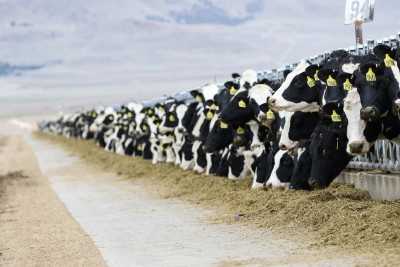Navigating Farm Management Changes with Employees by Libby Eiholzer

Navigating Farm Management Changes with Employees by Libby Eiholzer
We knew we were in for some changes in 2020 with the passing of the Farmworker Fair Labor Practices Act. For most farms in our region, paying overtime after 60 hours was a huge change that required careful consideration and planning. Many farms began looking at the potential impacts on their op-erations over the summer and fall of 2019. Some farms began making immediate changes to their employee scheduling and pay, while others waited until January 2020.
What none of us could have predicted in 2020 were the far-reaching effects of the Coronavirus pandemic. Financial and management plans made while expecting a much higher milk price in 2020 are now being re-evaluated. As I've talked with farmers and employees undergoing significant management changes over the past year, I've noticed some key strategies that lead to smooth transitions. If you're considering a management change on your farm, no matter how minor, consider the following before implementation.
1. Do your homework before making any changes. Think through it thoroughly from your employees' perspective. How might a change in schedule affect their personal lives? How will it affect them financially? Try to anticipate their questions so that you can answer them readily. Run your ideas by a key employee, other farmers, or a consultant; getting another perspective will help you consider multiple options. And by all means, make sure that what you tell your employees is in fact true! Don't assure your employees that their pay won't decrease unless you're sure that it won't.
2. Communicate early and often. Few things are worse from an employee's perspective than getting last minute news about something that will affect them significantly. If you are considering a change, let them know ahead of time so they're not caught unawares. Open communication goes a long ways towards building trust.
3. Be open and honest. When farmers make changes to employee pay and scheduling, they usually aren't doing so to be cheap and make as much money as possible. Rather they make these decisions in an effort to provide a good living for their employees while also making sound businesses decisions that will lead to long-term success for the farm business. Right now, most farms are making changes in order to comply with changing state regulations and to withstand a challenging economic environment. Help your employees understand why you're making the changes, and they're more likely to support them.
4. Include your employees in the decision making process when possible. After brainstorming possible solutions, run them by your employees to see what they think. They might come up with an even better solution that you hadn't considered, and they are more likely to take ownership of the solution if they feel that they have been able to weigh in. Alternatively, providing them with a solution that they probably won't like first could make them more receptive to the solution that you want to end up implementing!
With stress levels high and demands in every direction, a farm manager's first instinct can sometimes be to just make a decision and stick with it. Yet when people are involved, it's often better to take the time to do your homework, seek input and communicate openly in order to see your team through to the other side.
Upcoming Events
NYSDEC How to Get Certified Course
March 3, 2026 : NYSDEC How to Get Certified Course
Ellicottville, NY
NYSDEC training course in preparation to take the pesticide applicator exam.
From Data to Dollars: Making Data-driven Decisions to Increase Farmers Market Success
March 3, 2026
The Cornell Agricultural Marketing Research Program and Penn State University are excited to present this new, 6-week course as part of Cornell's Farmers Market Research Project. The course is for farmers with experience selling at farmers markets who wish to increase their earnings through management and marketing practices.
Cornell Organic Field Crops & Dairy Conference
March 6, 2026
Waterloo, NY
Farmers, researchers, educators, and agricultural service providers from across the Northeast are invited to the 2026 Cornell Organic Field Crops & Dairy Conference, held Friday, March 6, 2026, from 8:00 a.m. to 4:30 p.m. at the Lux Hotel & Conference Center in Waterloo, N.Y.
Co-hosted by New York Soil Health and Cornell CALS, the annual conference brings together leaders in organic grain, dairy, and livestock systems to share practical tools, new research, and farmer-tested strategies to support resilient and profitable organic production.
Announcements
No announcements at this time.





